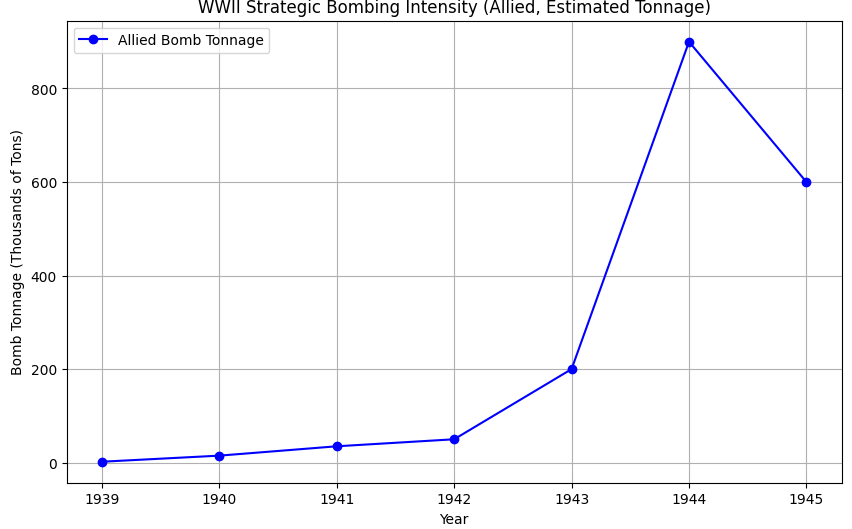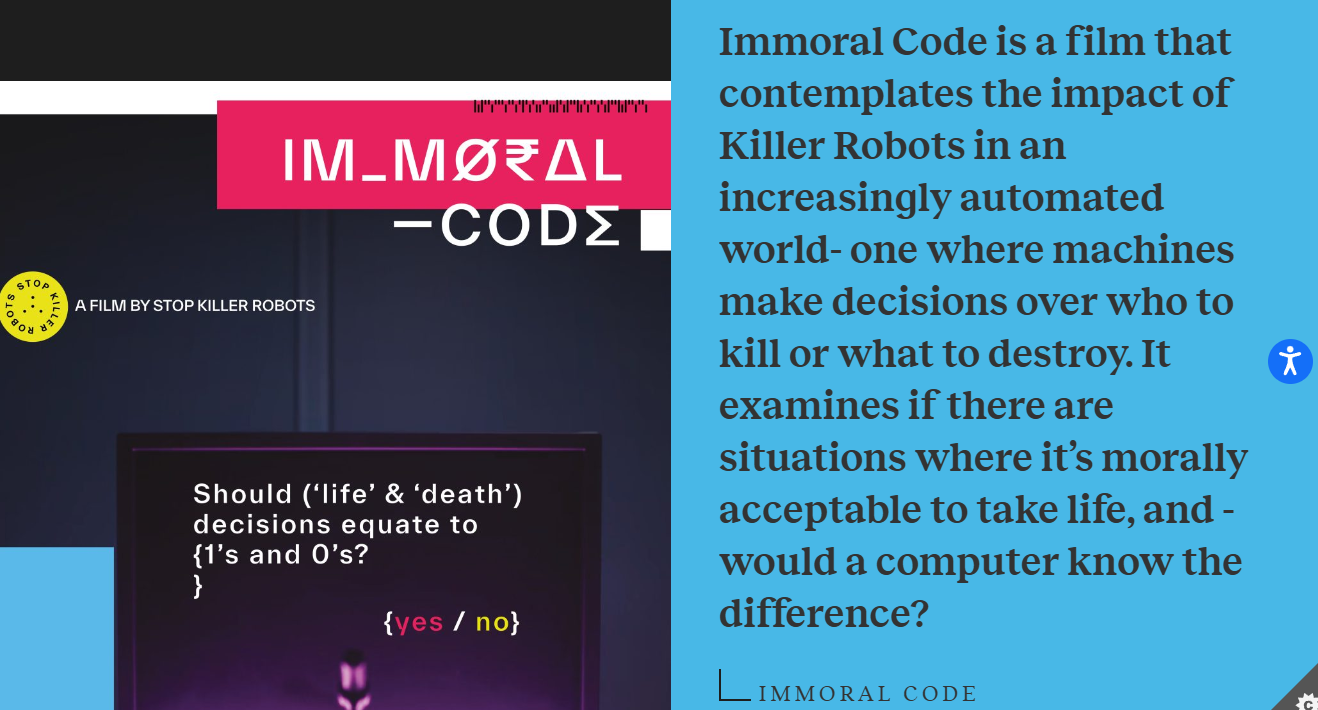Terror Bombing: The End of an Era?
Or Maybe the Start of a New One?
“General, your bomber is powerful. It flies faster than a storm and carries more than an elephant. But it has one defect: It needs a mechanic.” When Bertolt Brecht wrote these words, in the 1950s, he didn’t know about killer drones. Above, Dresden after carpet bombing in 1945. Drones could do worse than that.
The recent attack by Ukrainian drones on the Russian strategic bomber fleet has generated lots of comments and, as usual, plenty of propaganda obscuring the actual extent of damage. Nevertheless, you don’t need to be an expert in military matters to understand that when a weapon system developed in the 1950s (the bombers) clashes with a weapon system developed in the 2020s (the drones), the results can only be classed in the category of “horses against tanks.” Strategic nuclear bombers are probably obsolete, and that’s a good thing, at least in theory, because they are a weapon conceived mainly against civilian targets. Unfortunately, if drones will replace bombers, that will not be the end of terror bombing.
In my recent book, “Exterminations,” I dedicate an entire chapter to the story of terror bombing and how it was developed in large part by the Italian military theorist Giulio Douhet. (1869-1930). He is still known today for his book Il Dominio dell’Aria (“The Command of the Air,” 1921), in which he proposed that wars could be won by aiming bombers directly at the civilian population. Douhet never had a chance to put his ideas into practice himself, but from what he wrote, we can say that he was a morally sick person, a dangerous terrorist, and an enemy of humankind. Evidently, these character traits led to success in Douhet’s time, just as they do today.
Nevertheless, Douhet hit a central point in the question of how wars are conducted and for what purpose. Wars are a question of doing the maximum possible damage to the enemy at the minimum cost. Douhet’s idea was to bypass the cumbersome conventional military machinery and aim directly at the civilian population. “Kill them until the survivors will surrender.” Bombing was supposed to be (and it probably was already at his time) much cheaper in terms of damage/cost ratio than a conventional army.
Douhet’s ideas were put to the test during World War II by the Allies’ massive bombing campaign against Germany. By most accounts, it was a failure. Just think that the allies lost more than 50 thousand trained airmen against a loss of some 300.000 German civilians, most of whom were old people, women, and children. And all that without greatly hampering the German industrial capability.
Yet, all failed ideas are subjected to the “Easter Island Principle” — always operating in politics. It goes as, “If it doesn’t work, make it bigger.” (In Eastern Island terms, build bigger statues). It seems that the Allies were operating according to this principle when they stepped up their bombing efforts in a nearly exponential increase.
It is a classic case of positive feedback: the more you bomb, the more you think you need to bomb because the enemy refuses to surrender. Eventually, the Germans did surrender, but only when the Soviets marched into Berlin in May 1945.
There are several subtle and not-so-subtle reasons that led the Allies to engage in this mad campaign against Germany, but the point is to note how things went out of control once bombing became a purpose in itself, no longer a tool. And then it went into the hands of dangerous psychopaths such as Arthur “Bomber” (or “Butcher”) Harris, the leader of the “Bomber Command” in Britain. The result was that success was measured not in terms of damage done to the enemy’s military apparatus, but in terms of the number of bombs dropped on the chosen targets. At this point, it was an obvious choice to direct their efforts against soft “area targets,” that is, civilian areas, which were the most difficult to defend for the Germans. The Allied command was turned into what Freeman Dyson described as “a huge organization dedicated to killing people and doing the job badly.”
Now, I can see the bluish shape of the ghost of Giulio Douhet in front of me, telling me, “It didn’t work because, at that time, bombers were not cheap enough to fit my theory.” And, with a cruel smirk on his ghostly face, “But now things have changed, you’ll see!” And he disappears with a Satanic laugh.
Yes, because the thing is that drones are the perfect embodiment of Douhet’s ideas. They cost very little, are difficult to detect and to stop, reminding us of the old saying, “the bomber will always get through.” Not true up to now, but now probably true for drones.
Speculating is always fun, and often dangerous, but the recent attack on Russia by Ukrainian drones seemed to me an ominous presage of things to come (“ominous” is an understatement.). It is impressive how large the effect of an attack carried out by little more than a hundred drones was. True, it was directed mostly against military targets, but some drones were aimed at civilian or mixed targets, railroads, and bridges.
And now, what’s going to happen? The “batshit principle” is a way to describe the effects of positive feedback according to Connor Jennings
The algorithm will start to present your batshit thoughts to other batshit people, who in turn share it to all their batshit friends and family. Before long you’re rolling an enormous batshit snowball that’s picking up all the only-kind-of-batshit people along the way, and heading straight towards the rest of us.
So far, neither side in the Ukraine-Russia war has engaged in large-scale terror bombing. But both sides are already accusing each other of aiming their drones at civilians. As usual, it is mostly fake news and propaganda, but it may be partly true. And what if both sides get caught in an enhancing feedback trap with the batshit hitting the drones’ propellers?
In terms of costs, even a swarm of a million drones would still be well within the budget of both adversaries. Whereas military targets can be hardened against drone attacks, it would be impossible to do that for a city. And the tragedy of civilian extermination of WW2 could be repeated in Europe, even in larger proportions.
Some people are trying to do something about these matters, but their voice is swamped in the great noise of propaganda. Nevertheless, you may wish to take a look at the “Stop Killer Robots” site. After all, there have been treaties against chemical and biological weapons, so, maybe killer drones could be stopped. Who knows?








Last night I viewed and listened to an interview, Glenn Diesen talking to MK Bhadrakumar former Indian Ambassador. They both are well known to have a distinct point of view on Russia/Ukraine. I felt by the end I was listening to two very shaken highly informed highly intelligent men. By the end I also was very shaken, having learned stuff I had not known.
One of the main objectives of dropping so many bombs was to pay industry for a lot of bombs, to build up the MIC. There are other channels of financial support for the MIC now.
The MIC is the enforcement arm of global (western) financial capitalism, the continuation of the British Empire.
The "square mile" of London, which commands the UK, is badly over-leveraged on losing bets in Ukraine, and needs the war to continue, in the hopes of draining Russia, for a planned NATO war against Russia, in the interests of BlackRock et al.
Trump is a nationalist, in opposition to globalists, as are Vladimir Putin, Viktor Orban, and Robert Fico. The new Polish president is of that nationalist group, also. It would be good for Poland to avoid manipulation to London's ends this time around...
Gilbert Doctorow discusses that with Judge Napolitano in this transcript: https://gilbertdoctorow.com/2025/06/05/transcript-of-judging-freedom-5-june-edition/
Simplicius also has an update: https://simplicius76.substack.com/p/sitrep-6525-another-pr-stunt-dies
The globalist financial empire is increasingly desperate. Finance is how the wealth of nations is drained these days.
Secure your own needs; this may last a long time, still, and get much worse for those of us who have been spared so far.